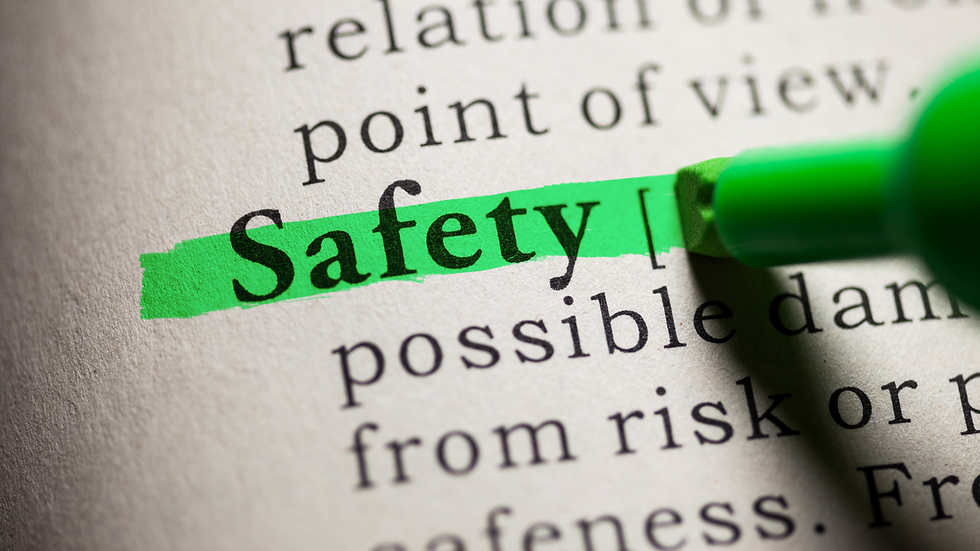How Do We Keep Our Community Safe?
- Kristen Snell

- Jul 10, 2024
- 3 min read
Updated: Jul 23, 2024
Guns in the hands of abusers is dangerous and all too often, deadly. Nearly three women are killed by an intimate partner every day in the United States (Violence Policy Center) and nearly half of the mass shooting incidents in the United States has a connection to domestic violence. These statistics are staggering and alarming, highlighting the importance of keeping guns out of the hands of abusers. This article explores current legislation and the gaps that exist.

Federal legislation
The Gun Control Act of 1968 prohibited anyone convicted of a felony and anyone subject to a domestic violence protection order from possessing a firearm. In 1996, the Lautenberg Amendment was passed, which extended the firearms ban to anyone convicted of a misdemeanor crime of domestic violence. (U.S. Dept. of Justice). This legislation defines misdemeanor crime of domestic violence as an offense that is a federal, state, or tribal law misdemeanor and has the use or attempted use of physical force or threatened use of a deadly weapon as an element. Additionally, the offender must fit one of the following criteria:
· be a current or former spouse, parent, or guardian of the victim;
· share a child in common with the victim;
· be a current or former cohabitant with the victim as a spouse parent, or guardian; · be similarly situated to a spouse, parent, or guardian of the victim (Giffords Law Center).
While the Lautenberg Amendment was a victory as it expanded legislation to include misdemeanor crimes of domestic violence, it left one glaring gap that is referred to as the “boyfriend loophole.” The “boyfriend loophole” highlights the lack of legislation that applies to dating partners.
In 2022, The Bipartisan Safer Communities Act (BSCA) was passed, partially closing the “boyfriend loophole.” BSCA defines a dating relationship as a relationship between individuals who have or have recently had a continuous serious relationship of a romantic or intimate nature (Giffords Law Center). BSCA also gives consideration to the length and nature of the relationship, as well as the frequency and type of interactions between the individuals.
Gaps in legislation
The BSCA partially closed the “boyfriend loophole” by including a prohibitions to dating partners convicted of misdemeanor crimes of domestic violence, it did not extend prohibitions to dating partners who are subject to domestic violence protection orders. The BSCA also allows dating partners to have their gun rights restored if their record remains clear for five years; under federal law, spouses, co-parents, and co-habitants are subject to lifetime restrictions (Giffords Law Center).
The “Charleston Loophole” is a gap in the federal background check system that allows gun sales to proceed by default after three business days, even if the background check is not yet complete. If a gun purchase able to proceed by default, the FBI has 90 days to conduct a background check. If the purchase is made by a prohibited buyer, the Bureau of Alcohol, Tobacco, Firearms and Explosives to attempt to retrieve the guns (FBI).
A strong predictor of future violence is stalking, but a “stalking gap” exists under current federal law. The current federal law prohibits individuals with felony stalking convictions from owning guns, but those convicted of misdemeanor stalking offenses are not.
Missouri legislation
In a review of gun policies per state, Everytown ranks Missouri #38 out of 50 with 24.2 gun deaths per 100,000 residents.
Missouri law does not:
· Prohibit individuals convicted of domestic violence misdemeanors from purchasing or possessing firearms or ammunition, unlike federal law;
· Prohibit individuals subject to domestic violence protection orders from possessing firearms or ammunition, unlike federal law;
· Require courts to notify people when they become prohibited from possessing firearms or ammunition under state or federal law due to domestic violence; or
· Explicitly authorize or require removal of firearms or ammunition at the scene of a domestic violence incident (Giffords Law Center).
There is a lot of work still to be done to strengthen the weak gun laws that fail victims of domestic violence each year. Missouri is not the only state lacking prohibitions need to address the gaps in federal laws, but there are many who are leading the way. It is vital that we expand both federal and state firearm prohibitions to disarm abusers as well as strengthen the federal background check system by closing the existing loopholes.
These actions can save lives.
Harmony House
The mission of Harmony House is to provide shelter, advocacy and education to survivors of domestic violence and promote the principle that all individuals have the right to life free of abuse.
Since 1976, our emergency shelter and supportive outreach case management programs have offered individuals and their children the opportunity to rest and heal both emotionally and physically in a supportive environment. We believe you. You are not alone and we can help!
If you or someone you know is living in an abusive situation, call 417–864-SAFE (7233) to speak with an advocate.
.png)